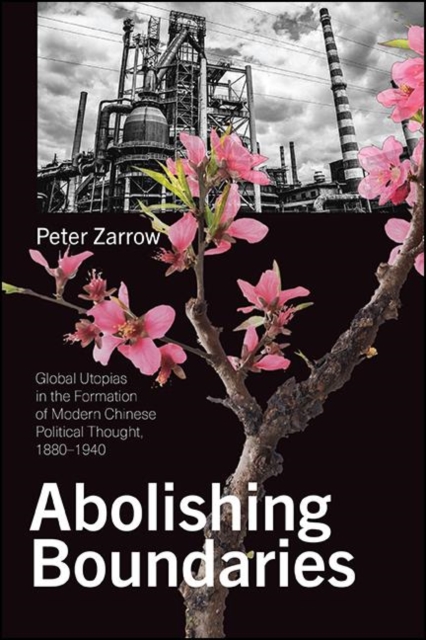
Abolishing Boundaries : Global Utopias in the Formation of Modern Chinese Political Thought, 1880-1940 EPUB
by Peter Zarrow
Part of the SUNY series in Chinese Philosophy and Culture series
EPUB
Description
Honorable Mention, 2022 Sharon Harris Book Award presented by the University of Connecticut Humanities Institute
Focusing on four key Chinese intellectuals of the first half of the twentieth century, Abolishing Boundaries offers new perspectives on modern Chinese political thought. These four intellectuals-Kang Youwei, Cai Yuanpei, Chen Duxiu, and Hu Shi-were deeply familiar with the Confucian and Buddhist classical texts, while also interested in the West's utopian literature of the late nineteenth century as well as Kant and the neo-Kantians, Marxists, and John Dewey and new liberalism, respectively. Although none of these four intellectuals can simply be labeled utopian thinkers, this book highlights how their thinking was intertwined with utopian ideals to produce theories of secular transcendence, liberalism, and communism, and how, in explicit and implicit ways, their ideas required some utopian impulse in order to escape the boundaries they identified as imprisoning the Chinese people and all humanity. To abolish these boundaries was to imagine alternatives to the unbearable present. This was not a matter of armchair philosophizing but of thinking through new ways to commit to action. These men did not hold a totalistic picture of some perfect society, but in distinctly different ways they all displayed a utopian impulse that fueled radical visions of change. Their work reveals much about the underlying forces shaping modern thought in China-and the world. Reacting to China's problems, they sought a better future for all humanity.
Information
-
Download - Immediately Available
- Format:EPUB
- Pages:288 pages
- Publisher:State University of New York Press
- Publication Date:01/01/2021
- Category:
- ISBN:9781438482842
Other Formats
- Paperback / softback from £25.51
Information
-
Download - Immediately Available
- Format:EPUB
- Pages:288 pages
- Publisher:State University of New York Press
- Publication Date:01/01/2021
- Category:
- ISBN:9781438482842









